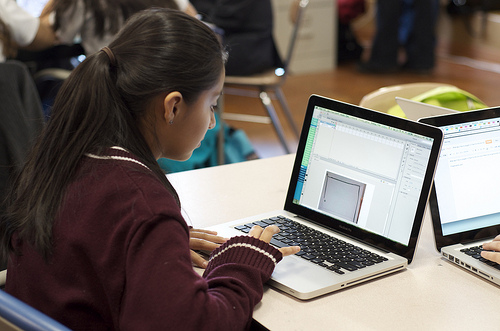What is an Acceptable Use Policy?

An Acceptable Use Policy is a document which addresses all rights, privileges, responsibilities and sanctions associated with the use of the internet and digital technologies within the school, including online and offline usage. It is usually drawn up by teachers and school leadership as part of a consultative process and often incorporated into the school’s overall Digital Learning Plan. Students should also be included in the consultation process in an age-appropriate manner. Ideally, every school will devise an AUP before it is involved in any use of the Internet and will seek Board of Management ratification (for legal reasons).
In general, it addresses the safe, acceptable and responsible use of the internet and digital technologies. It may be used as a framework or customised to reflect individual school circumstances and needs. (This publication also includes guidelines on the use of different aspects of the Internet. These can be adapted or subsumed into the AUP provided, should the school opt to include that level of detail).
As the rationale for having an AUP is primarily to promote good practice and safe, responsible use of the internet and digital technologies, it is a very important document. Its main goals are:
- To educate students, parents and teachers about the potential of the internet and digital technologies as a valuable learning resource
- To identify the school strategy on promoting the safe use of the Internet and address the risks associated with its use
- To provide schools with legal protection from liability
Explaining to students why an AUP exists and how it operates may sound obvious, but it is still an important step in raising awareness and providing students with understanding into various digital technology and Internet safety issues. Whilst regulation and technical solutions are very important, their use should be balanced by educating students to take a responsible approach. The education of students is an essential part of the school’s digital learning plan. Children and young people need the help and support of the school to recognise and avoid safety risks and build their resilience. A planned internet safety programme should be provided as part of SPHE/Wellbeing or other curriculum areas and should be regularly revisited with key safety messages reinforced as part of a planned programme. Online safety and digital wellbeing resources and advice is available from webwise.ie; the online safety initiative of the Department of Education.
Acceptable Use Policy
An AUP should address all aspects of usage of digital technologies and the internet. These include, but are not limited to:
Section 1: Online
- Broadband filtering level
- Searching, downloading and browsing websites
- Copyright guidelines
- Publishing a school website
- Online communication such as email, social media, online forums, messaging etc.
- Online gaming
Section 2: Platforms
- Digital learning platforms
- Use of email accounts
- Capturing and storing media
- GDPR
Section 3: Internet Safety
- Where to locate online safety advice and guidelines
- Definition of inappropriate material
- Illegal and harmful use of the Internet
- Use of equipment for commercial gain
- Use of email accounts
- Sanctions
- Reporting mechanisms
The type of sanctions to be imposed in the event of a breach of the AUP also forms a key part of the policy document and will give your school clear guidance in any such event.
Educating parents, students and teachers about the internet’s potential as a learning resource is any AUP’s main aim. Defining proper online behaviour and the consequences of breaching it, as well as providing schools with legal protection from liability, are also core elements behind a policy’s establishment.
While regulation is important, its use should be balanced by educating students to take a responsible approach.
The education of students is an essential part of the school’s internet safety provision. Children and young people need help and support to recognise and avoid online risks and harms.
A planned internet safety programme should be provided as part of SPHE or another curriculum area and should be constantly revisited with key safety messages reinforced as part of a planned programme.
Guidelines for Drafting your School AUP can be accessed here:
Distance Learning
As teaching moves online, school leaders and teachers should re-familiarise themselves with their AUP. Updates may need to be made if you are using new learning environments or additional tools to facilitate distance learning. It is a good time to remind staff, parents and students of any AUP updates.
For more information on distance learning safety advice and considerations, go to: https://www.webwise.ie/trending/distance-learning-safety-advice-and-considerations/





